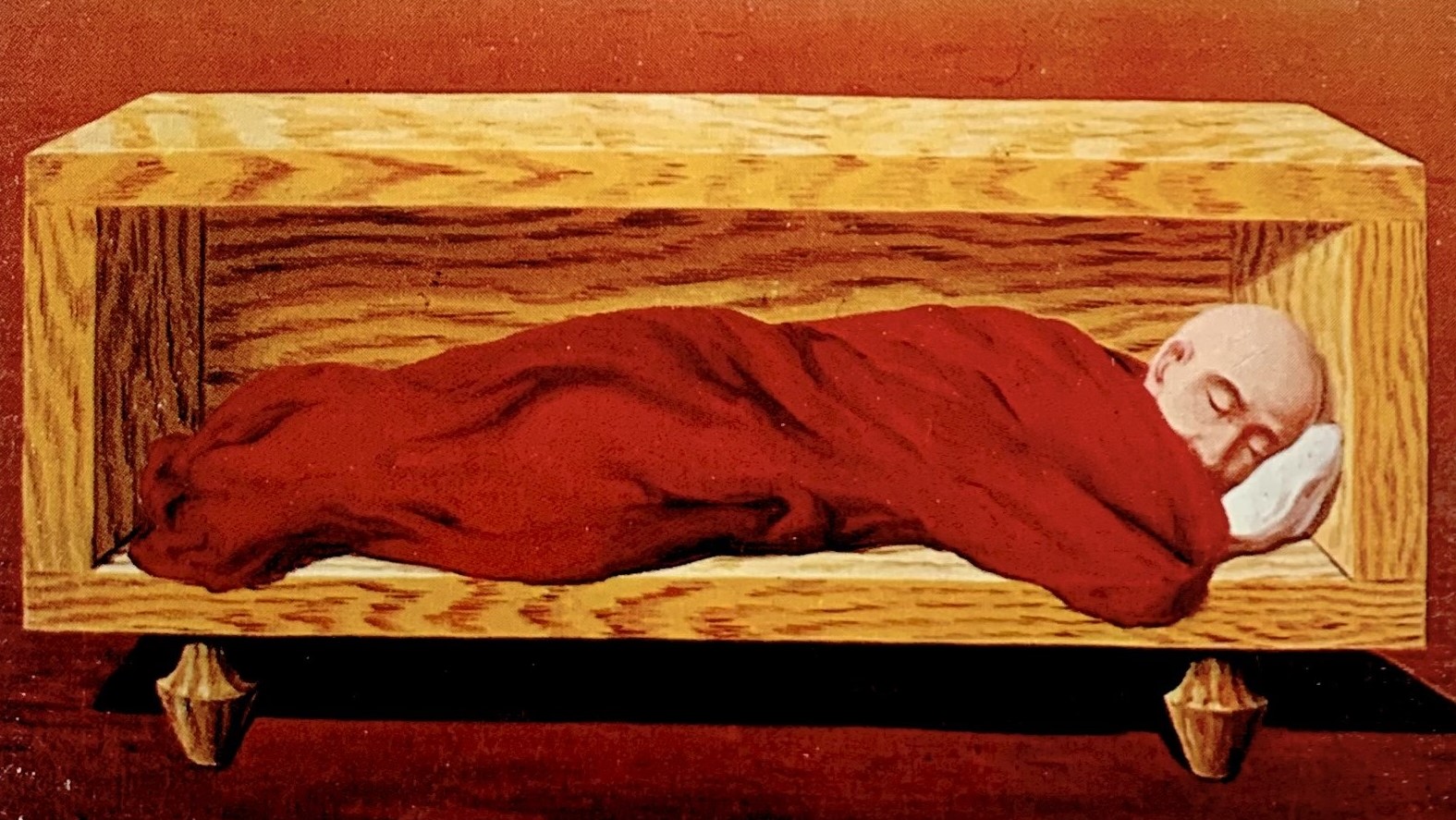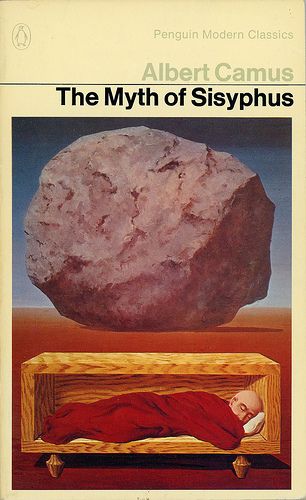The Absurd Man

From the artwork of The Myth of Sisyphus. (Penguin Modern Classics)
Much is spoken about Albert Camus’ ‘absurd man’, particularly as Sisyphus. But who is he? Having read The Myth of Sisyphus earlier this year, I found Camus’ most-illuminating example of an absurd man—person!—to be ‘the actor’. Here, in this short article, I will share Camus’ wisdom of him.
Passion, revolt, freedom
First, let us understand the absurd man.
The absurd man lives for his passions. He exists here and now, hoping for no more than what he’s been given. Though he abandons meaning, he is determined to live in the present and takes this perspective forward with him over the course of his life.
Yet the absurd man revolts against his very existence. He sees death as finality: there is no place for God. Nor is there any other source of intrinsic value to justify his existence in this world, nor a way to have consequence in another. The absurd man is torn from his urge to find unity.
But the absurd man is at least able to face the absurdity of his life squarely; for he accepts his own obscurity. In so doing, in renouncing the various falsities of hope, the absurd man finds freedom.
The actor
So what about the actor?
The actor taught us this: there is no frontier between being and appearing. Let me repeat. None of this has any meaning […] The final effort for these related minds […] is to manage to free themselves also from their undertakings: succeed in granting that the very work, whether it be conquest, love, or creation, may well not be; consummate the utter futility of any individual life. Indeed, that gives us more freedom in the realization of that work, just as becoming aware of the absurdity of life authorized them to plunge into it with every excess.
Camus means an actor of the stage. The actor of the stage knows his work—his characters—like himself, are mortal. Unlike film actors or even novelists and other purveyors of such art, whose work can be immortalised, the actor of the stage knows that his characters ‘die’ when he leaves the stage: nothing is recorded and the glory of applause is terminated with the drop of a curtain, even audibly following the throes of applause.
Yet the actor lived as each character: through them he lived in the present to excess. According to Camus, the actor also masters his life because he learns how to live a contradiction: he loses himself to find himself. There are no immortal souls to fix his existence. He knows this.
For that is his art—to simulate absolutely, to project himself as deeply as possible into lives that are not his own […] He will die in three hours under the mask he has assumed today. Within three hours he must experience and express a whole exceptional life. That is called losing oneself to find oneself […] This is where the actor contradicts himself: the same and yet so various, so many souls summed up in a single body. Yet it is the absurd contradiction itself, that individual who wants to achieve everything and live everything, that useless attempt, that ineffectual performance. What contradicts itself nevertheless joins in him.
But, of course, ‘time sweeps him along too’ (the actor) to a fate ‘whose outcome alone is fatal’.
The time comes when he must die to the stage and for the world. What he has lived faces him.
Yet he was the master of his world.
Outside of that single fatality of death, everything, joy or happiness, is liberty. A world remains of which man is the sole master. What bound him was the illusion of another world. The outcome of his thought, ceasing to be renunciatory, flowers in images.
He lived for now. The actor knew his finality. So he lived in the present, something which Camus implores us to do, as well, with a ‘revolt of the flesh’.
Likewise and during every day of an unillustrious life, time carries us. But a moment always comes when we have to carry it. We live on the future: ‘tomorrow,’ ‘later on,’ ‘when you have made your way,’ ‘you will understand when you are old enough.’ Such irrelevancies are wonderful, for, after all, it’s a matter of dying. Yet a day comes when a man notices or says that he is thirty. Thus he asserts his youth. But simultaneously he situates himself in relation to time. He takes his place in it. He admits that he stands at a certain point on a curve that he acknowledges having to travel to its end. He belongs to time, and by the horror that seizes him, he recognizes his worst enemy. Tomorrow, he was longing for tomorrow, whereas everything in him ought to reject it. That revolt of the flesh is the absurd.
Will you, too, step in line for this carnal revolution?

